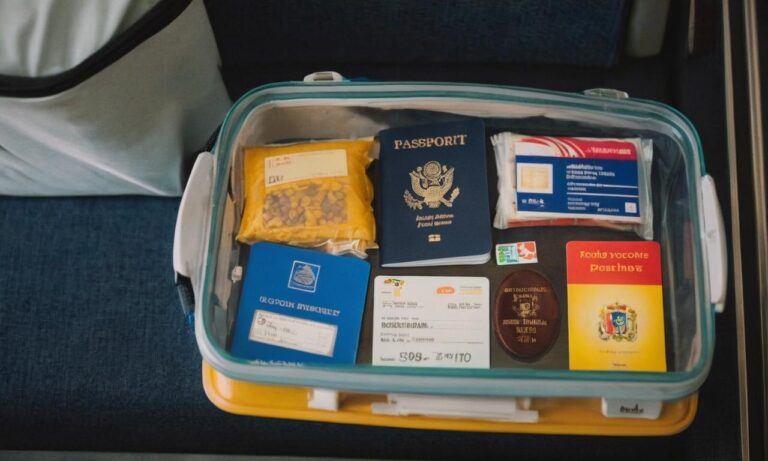Carrying food on a plane is a common query among travelers. It’s essential to understand the rules and regulations imposed by airlines and authorities regarding the transportation of food items aboard a flight.
Carry-On Food Regulations
Most airlines permit passengers to bring their own food on board, including both solid and liquid items. However, there are restrictions on certain types of food and beverages.
Non-liquid foods like sandwiches, fruits, nuts, and snacks are generally allowed in carry-on luggage. These items are unlikely to cause any security concerns. It’s advisable to pack them in secure containers to prevent spillage or spoilage during the flight.
Liquid or gel-based foods, such as yogurt, sauces, soups, or spreads, must adhere to the TSA’s 3-1-1 rule. These items should be in containers of 3.4 ounces (100 milliliters) or less and placed in a quart-sized, clear, zip-top bag. Remember, each passenger is typically allowed only one such bag.
Security Check and Screening
When passing through airport security, all food items must go through X-ray screening. Security personnel might also conduct additional checks on certain foods, especially if they appear suspicious on the scanner.
If you’re carrying food that might be considered unconventional or may raise concerns, it’s wise to inform the security personnel beforehand to avoid delays or issues.
International Travel Considerations
For international flights, there might be stricter regulations regarding the import and transportation of certain foods. It’s crucial to research and be aware of the destination country’s policies on food items to prevent confiscation or fines upon arrival.
Special Dietary Needs
Passengers with special dietary requirements or medical conditions necessitating specific foods should notify the airline in advance. Some airlines accommodate these needs by offering special meals that align with dietary restrictions or allergies.
Generally, carrying food on a plane is allowed, but certain guidelines and restrictions apply, varying between airlines and destinations. Being informed about these regulations ensures a hassle-free travel experience while enjoying your preferred food items on board.
Frequently Asked Questions
Here are some commonly asked questions regarding carrying food on planes:
| Question | Answer |
|---|---|
| Can I bring homemade meals on a plane? | Homemade meals are generally allowed, but it’s recommended to avoid liquids or foods that might appear suspicious during screening. Check airline policies for specifics. |
| Are there restrictions on bringing baby food or formula? | Most airlines permit baby food or formula in reasonable quantities for the duration of the flight. Be prepared for additional screening at security checkpoints. |
| Can I bring fresh fruits or vegetables? | Non-sliced fresh fruits or vegetables are typically allowed, but it’s advised to consume them before arriving at your destination due to restrictions in some countries. |
Additional Considerations
It’s important to note that while certain foods are generally allowed, it’s always wise to check specific airline policies and destination regulations before packing food items for your flight.






